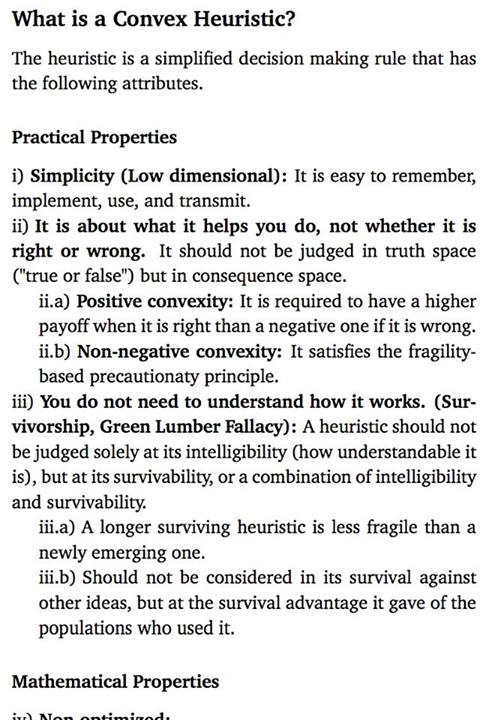The Skin In The Game Heuristic for Protection Against Tail Events
Constantine Sandis
Oxford Brooks
Nassim Nicholas Taleb
NYU-Poly; Université Paris I Panthéon-Sorbonne – Centre d’Economie de la Sorbonne (CES)
July 30, 2013
Abstract:
Standard economic theory makes an allowance for the agency problem, but not the compounding of moral hazard in the presence of informational opacity, particularly in what concerns high-impact events in fat tailed domains. But the ancients did; so did many aspects of moral philosophy. We propose a global and morally mandatory heuristic that anyone involved in an action which can possibly generate harm for others, even probabilistically, should be required to be exposed to some damage, regardless of context. While perhaps not sufficient, the heuristic is certainly necessary hence mandatory. It is supposed to counter risk hiding in the tails. We link the rule to various philosophical approaches to ethics and moral luck.
Number of Pages in PDF File: 10
Keywords: RIsk management, Heuristics, Black Swans, Fragility, Ethics, Moral Philosophy, Probability
working papers series
via The Skin In The Game Heuristic for Protection Against Tail Events by Constantine Sandis, Nassim Nicholas Taleb :: SSRN.
